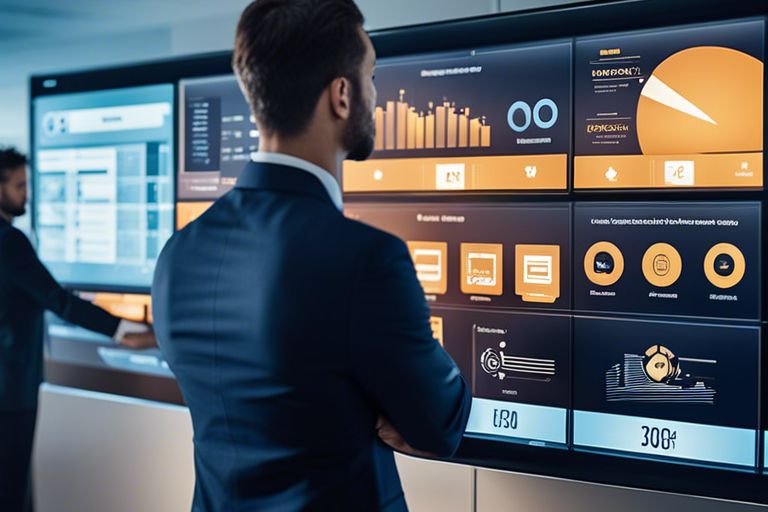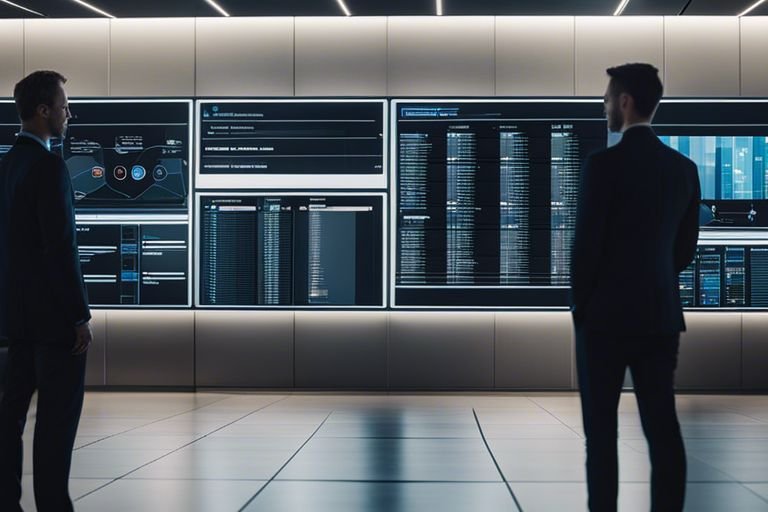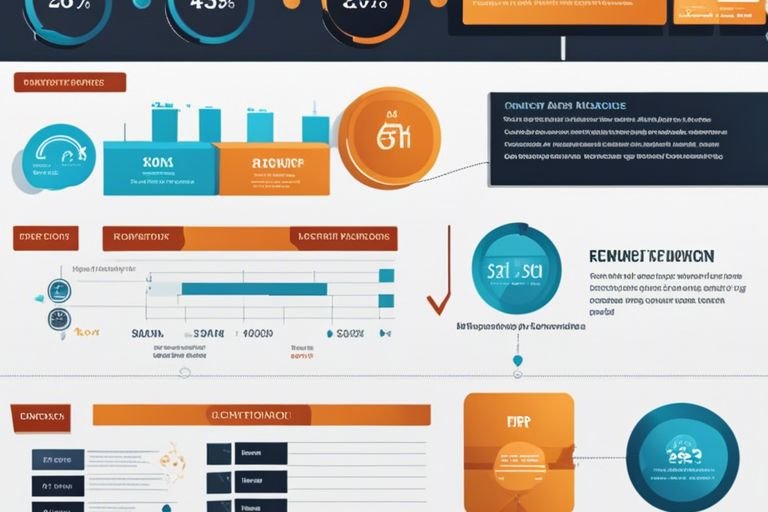What Are the Key Features to Look for in an ERP System?

Ensuring that your organization has the right ERP system in place is crucial for streamlining operations and improving overall efficiency. With a plethora of options available in the market, it’s essential to know the key features to look for when making this important decision. From integration capabilities and scalability to customization and data security, there are several critical factors that should guide your selection process. In this blog post, we will delve into the essential features that every ERP system should possess, providing you with the knowledge you need to make an informed choice for your business.
Key Takeaways:
- Scalability: It’s important to look for an ERP system that can grow with your business, allowing for additional users, features, and data without sacrificing performance.
- Integration Capabilities: The best ERP systems will seamlessly integrate with other essential business applications, such as CRM, HR, and supply chain management, to streamline operations and improve efficiency.
- Customization Options: A good ERP system should offer the flexibility to tailor the software to your specific business processes and industry requirements, enabling you to optimize workflows and maximize productivity.
Core Components of an ERP System
Even as businesses look to implement an ERP system, it’s vital to understand the core components that make up these comprehensive tools. What are the key features to consider when it comes to selecting the right ERP system for your organization?
Financial Management
For businesses, one of the most critical components of an ERP system is its ability to manage financial processes. This includes functions such as accounts payable, accounts receivable, budgeting, and forecasting. A robust ERP system should also provide real-time visibility into financial data, allowing for informed decision-making and accurate reporting.
For financial professionals, the ability to streamline processes and automate repetitive tasks is a significant benefit of an ERP system. By centralizing financial data and providing a single source of truth, businesses can improve efficiency and reduce the risk of errors in their financial management processes.
Supply Chain Management
To effectively manage the flow of products and materials, businesses require an ERP system with robust supply chain management capabilities. This includes features such as inventory management, demand planning, and procurement. An ERP system should also integrate with suppliers and logistics partners to ensure seamless communication and collaboration throughout the supply chain.
The integration of supply chain management within an ERP system enables businesses to optimize inventory levels, reduce lead times, and improve overall supply chain efficiency. This, in turn, leads to cost savings and improved customer satisfaction through better fulfillment and delivery processes.
The ability to track and trace products throughout the entire supply chain is crucial for businesses looking to ensure quality control and regulatory compliance. An ERP system with comprehensive supply chain management capabilities allows for visibility into the movement of products, enabling businesses to quickly identify and address any issues that may arise.
Advanced Features of ERP Systems
Some advanced features to look for in an ERP system include:
- Advanced reporting and analytics capabilities
- Customer relationship management (CRM) integration
- Supply chain management functionality
- Business process automation
- Advanced security features
When evaluating ERP systems, it is important to consider these advanced features to ensure that the system can meet the complex needs of your organization.
Business Intelligence and Analytics
Advanced ERP systems offer robust business intelligence and analytics capabilities, providing users with the ability to easily access and analyze data from across the organization. These systems can generate detailed reports and visualizations, allowing businesses to gain valuable insights into their operations and make informed decisions.
Customer Relationship Management (CRM)
One of the key advanced features to look for in an ERP system is seamless integration with customer relationship management (CRM) functionality. This integration allows businesses to effectively manage and track interactions with customers, streamline sales and marketing processes, and improve overall customer satisfaction.
With advanced CRM integration, businesses can access customer data and insights directly within the ERP system, enabling them to provide personalized and targeted services to their customers.
Usability and Integration
Not only should an ERP system be powerful and feature-rich, but it should also be user-friendly and seamlessly integrate with other systems within an organization.Usability and integration are key aspects to consider when evaluating an ERP system for your business.
User Interface and Experience
Integration plays a crucial role in the user interface and experience of an ERP system. A well-designed, intuitive user interface can enhance user experience and improve productivity. Look for an ERP system with a modern, easy-to-navigate interface that allows for customization to fit the specific needs and workflows of your organization. Integration with other systems such as CRM, HR, and supply chain management can further streamline operations and provide a cohesive user experience across different departments.
Integration Capabilities with Other Systems
Integration capabilities with other systems are essential for a fully functional ERP system. Seamless integration with existing systems such as e-commerce platforms, inventory management, and business intelligence tools is crucial for real-time data sharing and informed decision-making. With the ability to integrate with multiple systems, an ERP solution can provide a comprehensive view of the entire organization, enabling better collaboration and efficiency across various departments.
With the right integration capabilities, an ERP system can enable streamlined workflows, improved data accuracy, and better informed decision-making. This can ultimately lead to higher productivity, cost savings, and a competitive edge in today’s fast-paced business environment.

Selection and Implementation Considerations
For companies looking to implement a new ERP system, there are several important considerations to keep in mind during the selection and implementation process. From vendor selection criteria to training and support, each step of the process plays a crucial role in the successful adoption of an ERP system.
Vendor Selection Criteria
On the journey to selecting the right ERP system for your business, consider criteria such as vendor reputation, product scalability, and industry expertise. It’s essential to choose a vendor with a solid track record of successful implementations and a product that can grow and adapt with your business. In addition, industry-specific expertise is important, as it ensures that the chosen ERP system can meet the unique needs and challenges of your industry.
Training and Support
Selection During the implementation of an ERP system, training and support are key factors in ensuring a smooth transition and user adoption. Look for a vendor that provides comprehensive training programs for your team, as well as ongoing support and resources. The level of support offered by the vendor can greatly impact the success of your ERP implementation, so it’s important to thoroughly evaluate their training and support offerings.
The level of training and support provided by the vendor can greatly impact the success of your ERP implementation. With proper training, your team can fully understand and utilize the capabilities of the ERP system, leading to increased efficiency and productivity. Additionally, ongoing support ensures that any issues or challenges that arise post-implementation can be promptly addressed, minimizing downtime and disruption to your business operations.
By carefully considering vendor selection criteria and focusing on comprehensive training and support, businesses can position themselves for a successful ERP system implementation and maximize the value of their investment.
What Are the Key Features to Look for in an ERP System?
Now that we have explored the key features to look for in an ERP system, it is clear that businesses should prioritize functionality, flexibility, scalability, and integration capabilities when choosing the right solution. With these features in mind, organizations can ensure that their ERP system meets their current and future business needs, streamlines processes, improves decision-making, and enhances overall efficiency. By carefully evaluating these key features, businesses can select an ERP system that aligns with their unique requirements and helps drive success in the long-term.



